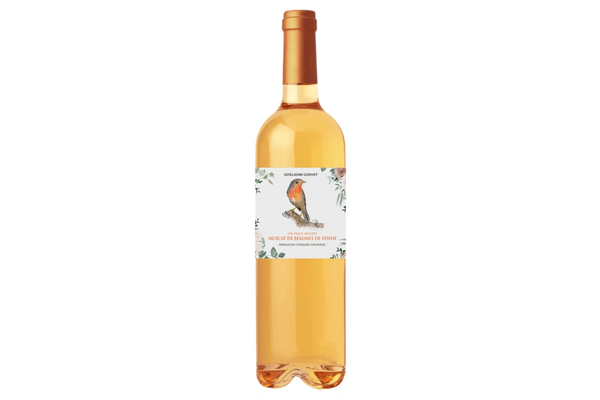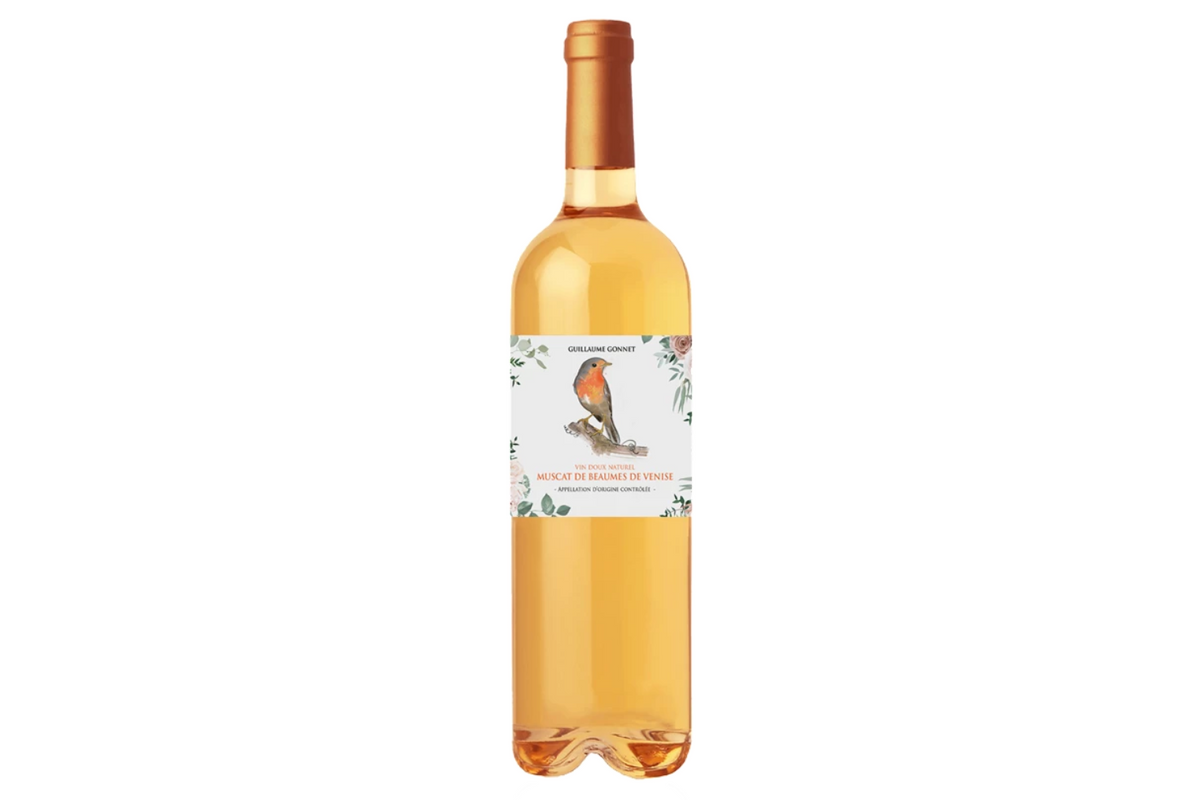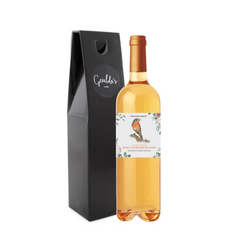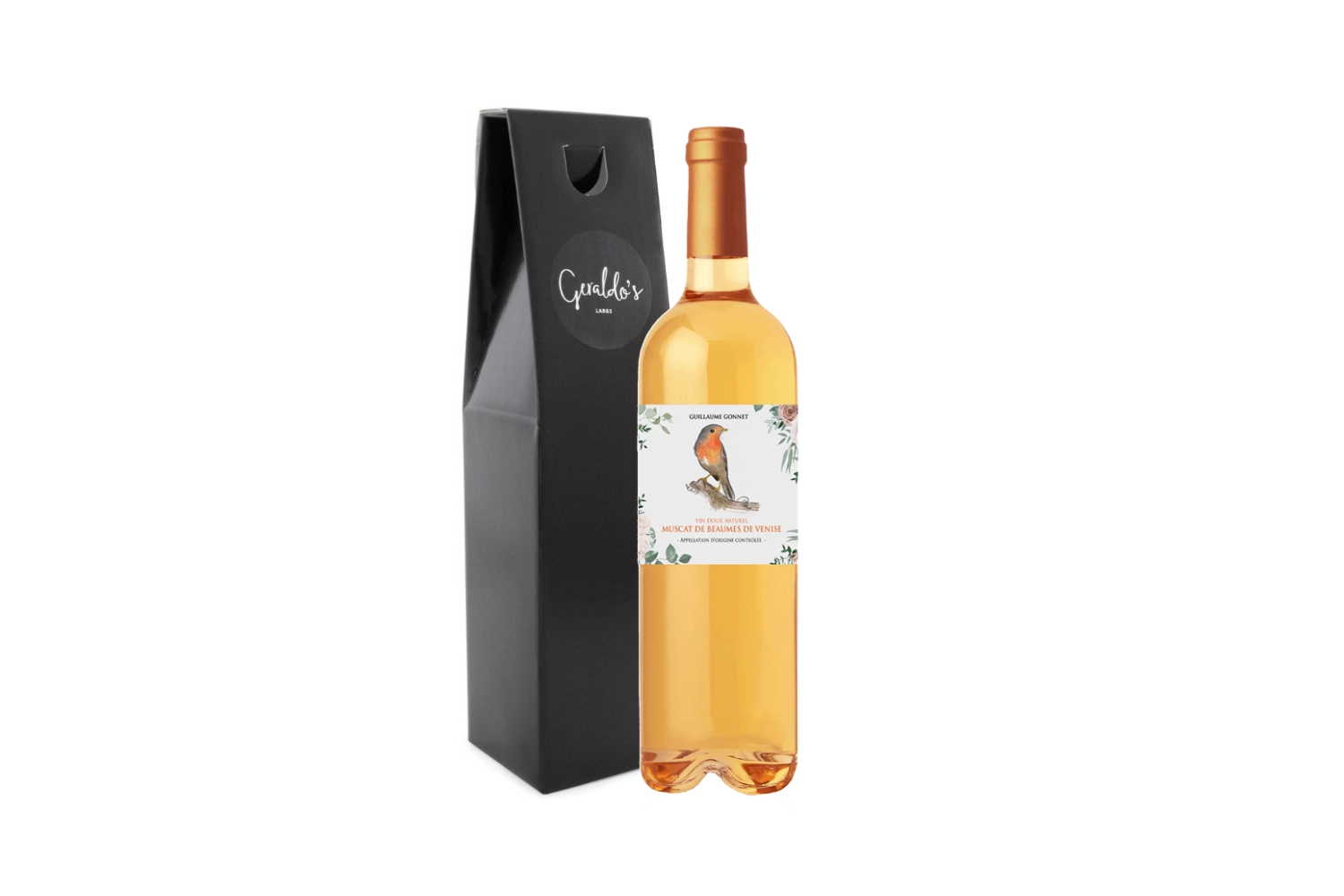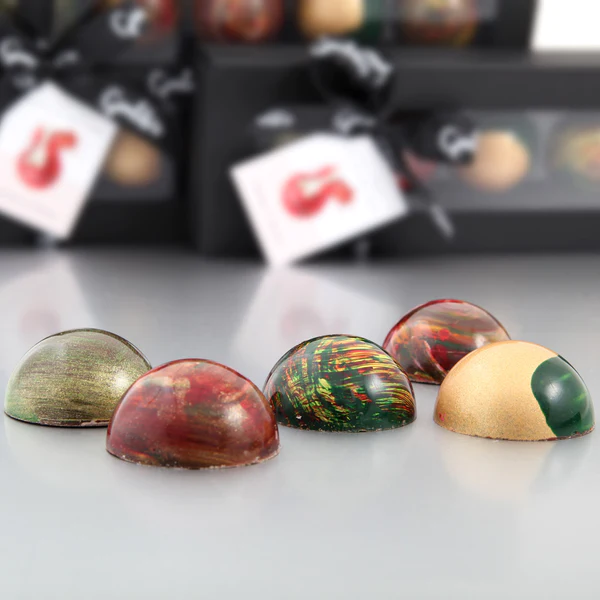Guillaume Gonnet, Muscat de Beaumes de Venise, Southern Rhône, 2021 BIN NO 4561
This ‘vindoux naturel’ dessert wine has an enticing aroma of flowers, peaches and apricots, which mingle with honey and ripe melon flavours. It's a seductively luscious sweet wine that is balanced by beautifully bright, sinuous acidity through to the finish.
This wine is the perfect match for blue cheeses or pâte but sublime with fruit-based desserts or as an aperitif.
50cl
ABV 15%
Muscat Blanc à Petits Grains 100%
Vegetarian, Vegan, Certified Organic
Producer Profile
The energetic and charismatic Guillaume Gonnet is not your average Rhône winemaker. Extremely open in his attitude, his curious, boundary challenging approach extends beyond wine.
He travelled to the far ends of the earth, revelling in the opportunity to surf some of the best waves in the world while learning his craft in various Australian and New Zealand regions. Returning to the Rhône, now with his Australian wife Kelly, Guillaume has shown similar energy for his family estate and for his own nascent project. This land locked surfer may be miles from the ocean but is happily riding the wave of new found enthusiasm for Grenache based wines. Pursuing biodynamics wherever possible, allowing his fruit to express itself freely through hands-off winemaking and displaying his fascination for the varying soils of the Rhône through his diverse range of wines, he's just the sort of restless creative that we love to work with.
Viticulture
Planted on narrow terraces, known as "restanques" or "faysses", and supported by walls, the muscat vines have shaped this region's landscape.
Winemaking
After crushing the must is then immediately transferred to stainless steel vats and fermented at low temperatures (4° to 6° C) in order to preserve the extraction of aromas. The fermentation process usually lasts two to four weeks. When the time is right, fermentation is stopped by the addition of alcohol to the residue (must) so as to obtain a wine with an alcoholic content of about 15% in volume and around 110 grams per litre of residual sugar.
Oak Ageing
No oak ageing






